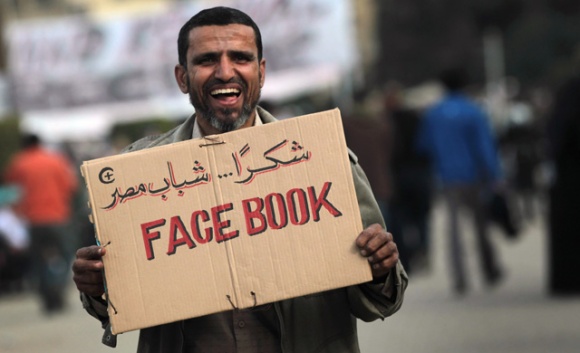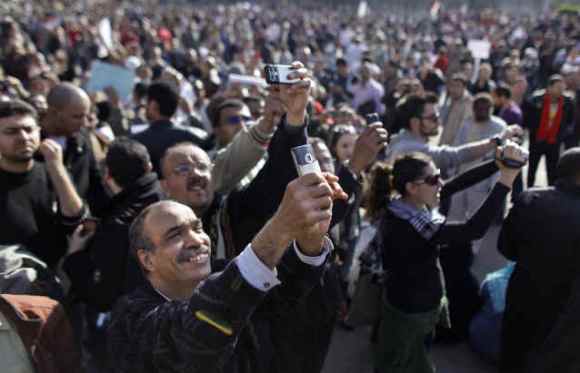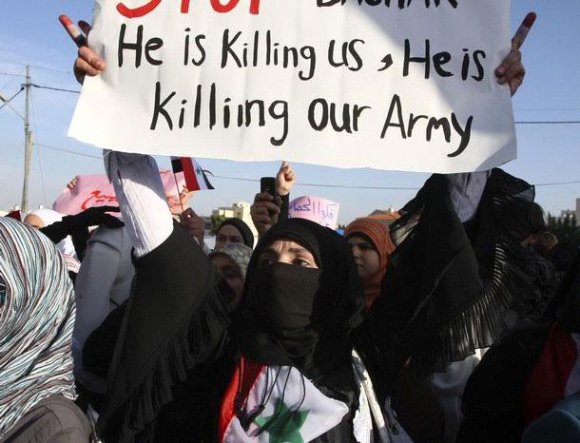Tweets, posts and shares are powerful ways to communicate. Last year we referenced this power during our series on social media. Today, we look at how social media is playing a part in telling one of the most important stories in recent years – the Arab Spring.
The Arab Spring began in December 2010 and sparked a wave of protests across the Middle East. Photos and videos of violence, human rights abuses and political corruption shared via Facebook and Twitter were used to coordinate and publicize mass protests, draw world wide attention and create political pressure. As of the end of last year, leaders were ousted in Tunisia, Libya, Yemen and twice in Egypt. Uprisings continue in Bahrain, Algeria, Iraq, Jordan, Kuwait, Morocco, Sudan as well as a war in Syria.
Facebook was one of the first places where the Syrian opposition organized and shared information. In a country that has banned international and independent journalists and uses citizen-spies to report public discussion and revolutionary acts, social media sites like Facebook had been the primary means of communication for opposition groups. However, Facebook has decided to shut down many of the protestors’ sites due to their content. Facebook uses community standards and content rules to monitor and prevent cyber bullying and hate speech, but the social network has had a tough time figuring out where to draw the line when it comes to possible human rights abuses being shared on their site. Those against this type of censorship argue that while the content may be difficult to view, so are the scenes unfolding in Syria, and that these scenes may be exactly what the world needs to see. Others say that it may be time for Facebook to create a type of rating system for their censorship in order to determine whether a post is historically significant. One major issue is that when Facebook deletes a page it is erasing history and potential evidence that could be used against the violators if they ever go to trial.
Below are some newsworthy images of the Arab Spring about the power of social media in telling the story.
– – –
A protestor holds a sign acknowledging Facebook’s role in the Arab Spring.
Anti-government protestors in Egypt take photos with their smartphones at a demonstration in Cairo.
An image of a protestor in Syria shared on the Syrian Revolution 2011 Facebook page.
– – –
Do you agree that a rating system should be created for the level of censorship social media sites use to monitor content?
The Collaborative Services Team




Recent Comments